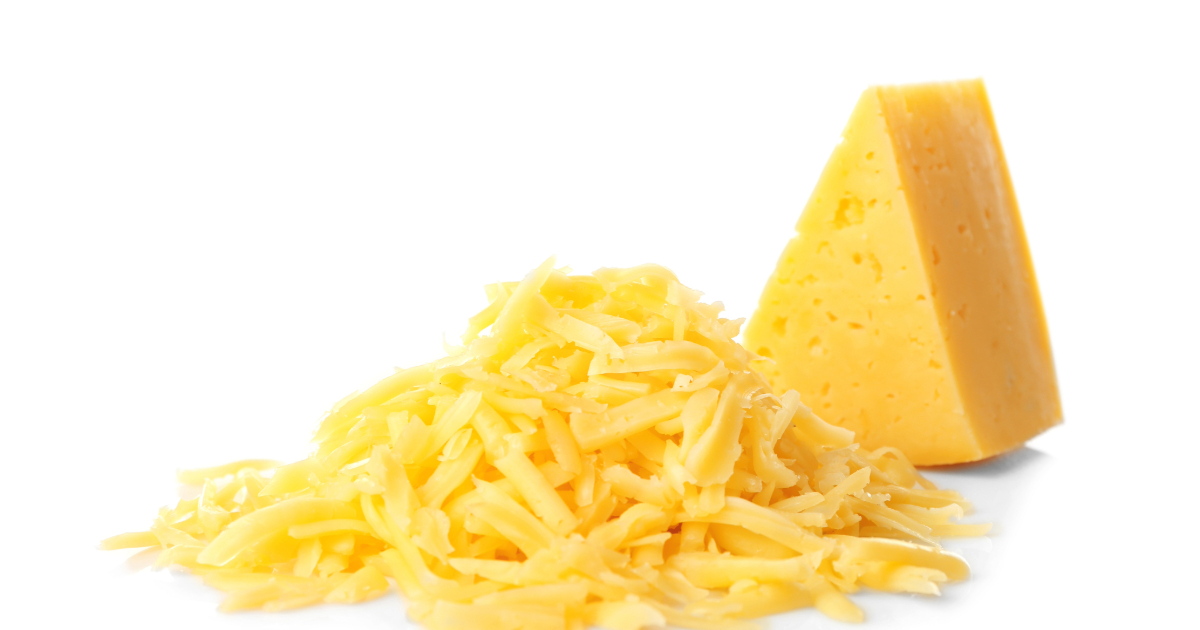Pepper jack and cheddar are two of the most popular cheese varieties in the U.S.

Both have unique flavors and textures that make them versatile ingredients in cooking and snacking.
But what exactly sets pepper jack apart from cheddar?
Overview of Pepper Jack and Cheddar
Pepper jack is a semi-soft cow's milk cheese that gets its name from the addition of spicy peppers and herbs during the cheesemaking process. It has a creamy, smooth texture with a tangy, spicy bite. Cheddar is a hard cow's milk cheese ranging from mild to sharp in flavor with a crumbly, dense texture that varies with age.
While both pepper jack and cheddar melt well, pepper jack is creamier when melted while aged cheddar can become oilier. In terms of uses, pepper jack shines in Mexican dishes like quesadillas and nachos while cheddar reigns supreme in classics like burgers, mac and cheese, and grilled cheese.
Flavor and Texture
The most noticeable difference between pepper jack and cheddar is in their flavor and texture profiles.
Pepper Jack Flavor and Texture
Pepper jack has a creamy, smooth texture with a mild, tangy base that's spiked with chili peppers like jalapeños, poblanos, and Anaheims. This gives it medium spice level with fruity, vegetal pepper notes.
As pepper jack ages from 1 month up to 6 months, its base flavor becomes tangier while the peppers impart more heat and concentrated flavor. The texture also firms up slightly but remains smooth and sliceable.
Cheddar Flavor and Texture
The flavor and texture of cheddar varies wildly based on age. Young or mild cheddar is smooth, firm, and pale yellow with a delicate tangy, nutty flavor. Aged cheddar develops a drier, crumbly texture that ranges from pale yellow to white or orange and takes on a sharp, complex tang.
Extra sharp aged cheddar can pack some serious bite with sour and salty notes coming through. The texture also contains flavorful crunchy bits. High quality aged cheddars often deliver caramel, fruit, or savory aromas.
In general, cheddar offers a wider spectrum of flavors and textures while pepper jack stays more consistent across ages with its key flavors coming from the blended peppers.
Key Takeaway: Pepper jack cheese gets tangy, fruity heat from peppers while cheddar ranges from mild and nutty to intensely sharp and complex.
Melting Abilities
A key reason pepper jack and cheddar are go-to ingredients is their meltability. But they do have some differences in how they melt and perform when cooked.
How Pepper Jack Cheese Melts
Thanks to its higher moisture content, pepper jack melts smoothly into a creamy liquid when heated. This makes it perfect for:
- Quesadillas
- Fondue
- Nachos
- Burgers
- Grilled cheese
The spiciness can intensify when cooked so pepper jack brings a nice heat level to any melted preparation without overpowering other ingredients.
How Cheddar Cheese Melts
Cheddar can become oilier when melted compared to pepper jack due to its lower moisture and higher fat content. But its excellent melt makes it right at home in dishes like:
- Mac and cheese
- Burgers
- Grilled cheese
- Soups like broccoli cheddar
- Pot pies
The age affects melting — mild cheddar becomes silky while aged varieties separate into oily pools surrounding nuggets of sharp flavor. Extra sharp cheddar in particular can become grainy when melted so it may not be ideal for delicate sauces.
Key Takeaway: Pepper jack melts into a smooth, creamy liquid while cheddar can separate into oily pools, especially with age.
Nutrition
Pepper jack and cheddar have relatively similar nutritional values. However, cheddar tends to be higher in calories, fat, and sodium while pepper jack normally has less fat and more protein by weight.
Here's a nutritional overview:
| Nutrient | Pepper Jack | Cheddar |
|---|---|---|
| Calories | 110 per oz | 115 per oz |
| Fat | 9g per oz | 9-10g per oz |
| Saturated Fat | 6g per oz | 6g per oz |
| Protein | 7g per oz | 6g per oz |
| Carbs | Less than 1g per oz | Less than 1g per oz |
| Sodium | 230mg per oz | 170-400mg per oz |
As you can see, cheddar covers a wider range for sodium content. Aged, specialty cheddar often contains higher sodium levels than milder varieties.
The slight differences mean both cheeses can play a role in a balanced diet. For those limiting sodium or calories, pepper jack may be a better choice over aged cheddar.
Best Uses
While both cheeses work in a variety of dishes, pepper jack and cheddar each shine in different areas based on their flavor profiles and melting behaviors.
Best Uses for Pepper Jack
Pepper jack really dominates in Mexican cuisine thanks to its spicy kick and creamy melting texture:
- Quesadillas - Pepper jack makes the perfect smooth, lightly spicy filling.
- Enchiladas - It beautifully coats fillings and tortillas with melty, spiced cheese.
- Nachos - Those tangy, spicy notes pair so well with tortilla chips!
- Tacos - It's an ideal topping that doesn't overwhelm fillings.
- Fajitas - Mix with other melty cheeses for perfect fajita toppings!
Beyond Mexican dishes, pepper jack also plays well in:
- Pizza - It nicely cuts through rich meats and vegetables.
- Burgers - It melts wonderfully over the patty with a touch of heat.
- Grilled Cheese - It adds excitement without overpowering the sandwich.
Best Uses for Cheddar Cheese
Thanks to its diverse flavors and textures, cheddar finds itself at home in a multitude of dishes:
- Mac and Cheese - It's the classic melty, creamy cheese binding for macaroni.
- Burgers - Cheddar (especially aged) is the quintessential burger topper.
- Grilled Cheese - From American cheese to extra sharp cheddar, it's ideal for gooey sandwiches.
- Soups - Broccoli cheddar is a favorite! But cheddar elevates any creamy soup.
- Pot Pies - The aged bite plays perfectly against flaky pie crust and gravy.
- Crustless Quiche - Cheddar baked into egg pie delivers a wonderfully firm, smooth texture.
Cheddar also shines when simply cubed or shredded as a snack or charcuterie cheese thanks to its range of textures and flavors.
Best Substitutes
In a pinch, here are some of the best substitutes to use for pepper jack or cheddar:
Substitute for Pepper Jack
- Monterey Jack - Very similar texture and melt; lacks the spice.
- Muenster - Also creamy, smooth-melting, and mildly tangy.
- Habanero Cheddar - Cheddar with a very spicy kick.
Substitute for Cheddar
- Gouda - Smooth like cheddar but sweeter with fruity flavors.
- Colby Jack - Cheddar's orange cousin provides similar bite.
- Monterey Jack - Lacks sharpness but matches texture and melt.
FAQs
Is Pepper Jack Cheese Spicy?
Yes! Pepper jack cheese gets its name from the addition of hot chili peppers like jalapeños during production. These peppers impart mild to moderate spiciness and extra flavor.
Can I Substitute Pepper Jack for Regular Monterey Jack?
You can substitute pepper jack for Monterey jack in recipes but keep in mind you will lose some flavor without the peppers. Feel free to add your own chili peppers to mimic that signature pepper jack heat!
Why Does Cheddar Cheese Crumble When Heated?
The proteins and fat in aged cheddar start to break down when heated, leading to an oily leak and dried out crumbles around the edges. Young, mild cheddar has more moisture so it melts into a creamy liquid instead.
What Dishes Use Lots of Pepper Jack Cheese?
Pepper jack is extremely popular in Mexican cuisine where its spice level and melting texture shine. Think quesadillas, enchiladas, tacos, fajitas, and of course, nachos loaded with pepper jack cheese!
Is Cheddar Cheese Good on Pizza?
Cheddar's tang pairs wonderfully with bold pizza toppings like pepperoni. Just know that aged cheddar may become oily or grainy rather than achieving that stretchy melted mozzarella texture. Mild or medium cheddar melts into perfect pizza bites!
Conclusion
While their differences set them apart, both cheeses share that crave-worthy melty, creamy texture we know and love.
Pepper jack brings its signature spice kick and smooth melt to Mexican cuisine while cheddar continues to rule across so many comforting baked dishes.

